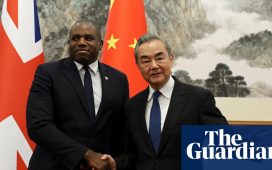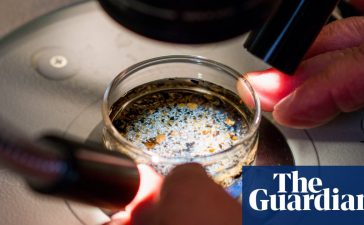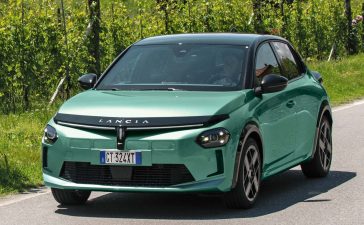Washington DC – January 27, 2022: The Atlantic Council’s Transatlantic Security Initiative (TSI) has launched a new partnership with the Ministry of Defense of the Netherlands to collaborate on key policy issues related to transatlantic cooperation on defense technology innovation.
The rise of emerging and disruptive technologies (EDTs) is reshaping NATO’s future battlespace, as “technological primacy increasingly influences success on the battlefield.” As the Russian war in Ukraine has demonstrated through the usage of key EDTs, such as drones and hypersonic weapons, adaption to technological changes is critical to battlefield success and will continue to drive the transatlantic community and its strategic competitors to invest in new technologies in hopes of gaining an edge in future conflict. The Atlantic Council and the Dutch Ministry of Defense will use tools including public events, publications, and a policy workshop to explore the options to connect Dutch military innovations, developments and research to the innovation ecosystem of the United States.
This partnership, housed in the Atlantic Council’s Scowcroft Center for Strategy and Security, will shape a more agile and cooperative approach to equip the United States, its allies, and partners with innovative technology; empower NATO and the private sector to further invest in research and development of EDTs; andexploit innovation as an efficient, regular tool of national security.
“Russia’s brutal war in Ukraine has highlighted many challenges facing the transatlantic community,” said Atlantic Council President and CEO Frederick Kempe. “To continue to lead as it has for the past 70 years already, NATO and its members need to focus on technological innovation and a concerted effort to cooperate across the Alliance and between the public and private sectors to harness emerging and disruptive technologies to maximum effect, and share their benefits for national security across the allied community.”
“From the Dutch perspective, fostering innovation ecosystems and mastering emerging technologies is a priority for ensuring our and the transatlantic community’s security. To keep up with and leverage the irreversible rise of emerging technologies, especially in the defense sector, the Netherlands has been investing heavily in its strategic thinking, research, and partnerships. This collaborative effort with the Atlantic Council is just the most recent step in a long series of efforts to link Dutch innovations to the US innovation ecosystem and prepare the Netherlands for the future, and help bolster transatlantic security and defense,” stated Rear Admiral (LH) Sebo Hofkamp. “International cooperation and partnerships with strategic partners plays a key role in responding rapidly to projects for the joint research and development of capabilities, and to scale up successful innovation projects. The partnership with the Atlantic Council fits perfectly in the vision of the Netherlands Ministry of Defense.”
The Atlantic Council will host a policy workshop convening the United States, European, and Indo-Pacific officials, as well as academic experts, thought leaders, and private sector actors to inform the development of an issue brief. The issue brief will detail steps to foster and promote transatlantic defense innovation, examine underway efforts, and deliver actionable recommendations for policy makers on both sides of the Atlantic.
“The Atlantic Council for over 60 years has been at the leading edge of addressing the most pressing challenges facing NATO and collaborating with the Ministry of Defense of the Netherlands is an opportunity to leverage the Dutch expertise on innovation for the broader transatlantic community,” Kempe added. “We look forward convening experts, military and government officials, and the private sector to propose bold and innovate ideas to inform this critical debate and better enable NATO to meet the challenges already on its doorstep.”
The Scowcroft Center for Strategy and Security (SCSS) works to develop sustainable, nonpartisan strategies to address the most important security challenges facing the United States and the world. The Scowcroft Center honors General Brent Scowcroft’s legacy of service and embodies his ethos of nonpartisan commitment to the cause of security, support for US leadership in cooperation with allies and partners, and dedication to the mentorship of the next generation of leaders.
The Transatlantic Security Initiative (TSI) brings together top policymakers, government and military officials, business leaders, and senior experts from Europe and North America to share insights and develop innovative approaches to the key challenges facing NATO and the transatlantic community. Building on the Scowcroft Center’s mission, TSI focuses on developing strategies for the United States and its NATO allies and partners on both sides of the Atlantic.
The Dutch Ministry of Defense notes in their Defense White Paper for 2022 that the Armed Forces must be able to win the war of today and the war of tomorrow. Having the ability to do so is a deterrent. That is why the Defense organization will continue to take the lead in research and development, as well as in the exploration of new domains. The Ministry of Defense plans to do this in cooperation with our allies and partners. This is in alignment with the strengths of the Netherlands as a knowledge and network economy. A strong ability to innovate guarantees that the high-tech Defense organization can and will react to relevant developments. Essential to strategic autonomy, a thriving defense sector is supported with focus on expanding cooperation between knowledge institutes and the Dutch defense industry, short-cycle innovation, participation in defense material projects, and innovative technology development.
For email inquiries or to request an interview, please contact [email protected].











